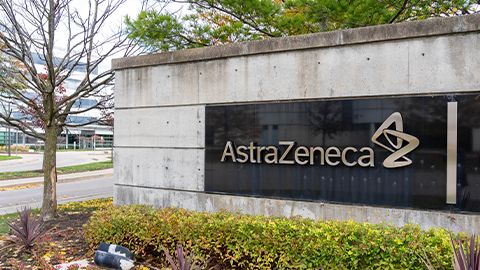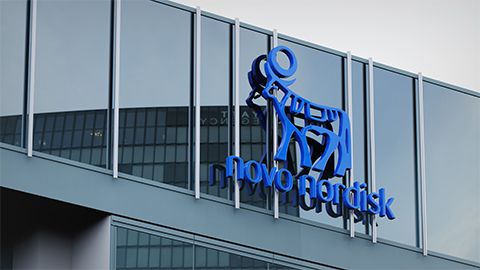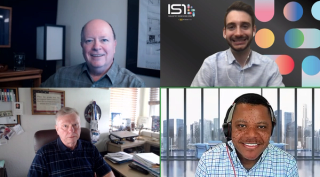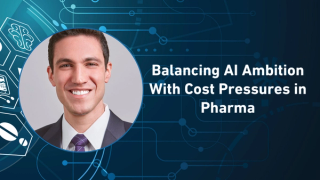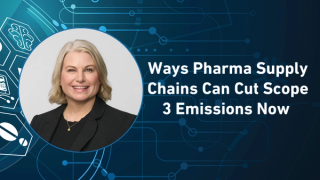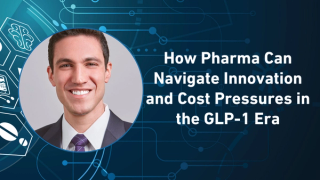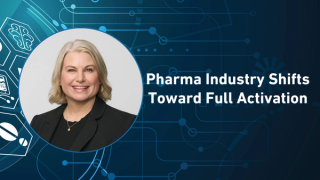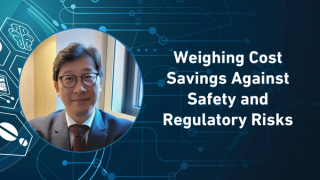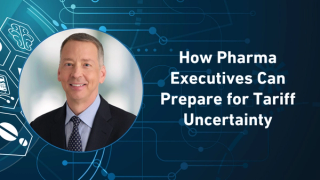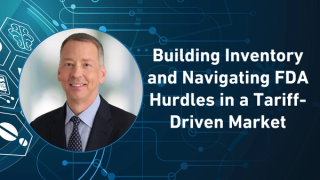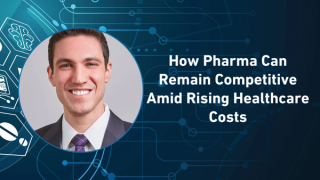
Business and Finance
Latest News

Latest Videos

Podcasts
More News
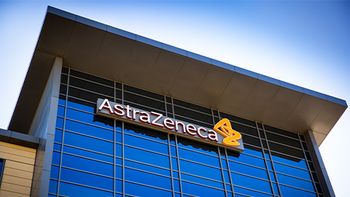
The new Albemarle County site—reportedly the largest investment in AstraZeneca’s history—will focus on API and ADC production, create 3,600 jobs, while strengthening US pharma supply chain resilience.

Set to debut in California this December, Amazon’s new pharmacy kiosks aim to streamline care by letting One Medical patients pick up prescriptions right after appointments, eliminating the need for a separate pharmacy visit.

The addition of Evo’s cryogenic shipping and tracking technology enhances Peli BioThermal’s reach across the pharma value chain, driving innovation and integration in temperature-controlled logistics while supporting these therapies.

This episode of Pharma Pulse covers the FDA’s quiet approval of the first generic mifepristone tablet, Takeda’s decision to discontinue cell therapy research programs, and SciSafe’s expansion of biopharma storage capacity with a new East Brunswick, New Jersey facility.
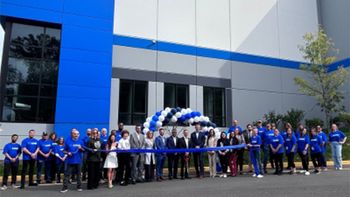
The new 5-million-cubic-foot biorepository enhances cold chain logistics, expands biopharma storage capacity, and strengthens New Jersey’s position as a life sciences hub.

This episode of Pharma Pulse covers the potential ramifications of a federal government shutdown on FDA operations, Aetna’s newly announced 2026 Medicare Advantage offerings, and new research showing maternal and child mortality rates in the US remain higher than in most high-income nations.
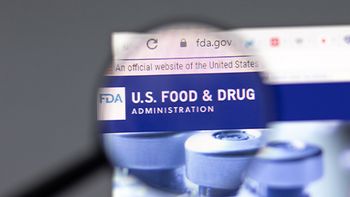
Following Congress’ failure to pass funding measures, FDA announced it will continue only essential public health and safety functions. This amid a pause on imposing 100% tariff rates.

This episode of Pharma Pulse covers ATA’s warning that telehealth protections are critical to maintaining care access during a potential federal shutdown, new KFF data showing the rapid rise of Medicare Advantage special needs plans, and Halozyme’s $750 million acquisition of Elektrofi to expand its drug delivery portfolio.
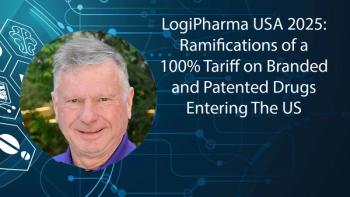
Dave Malenfant, healthcare supply chain expert, discusses the ramifications of a 100% tariff on branded and patented drugs entering the US.

This guide shows how to move beyond rear-view reporting and transform data into actionable strategies that drive payer engagement, sharpen planning, and maximize brand performance.
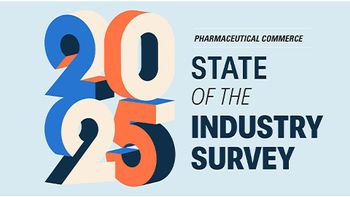
Capturing insights from executives and industry experts on the biggest challenges shaping pharma today, from drug pricing pressures and access barriers to supply chain shifts, digital adoption, and evolving patient-centered care strategies.

This episode of Pharma Pulse covers new research showing Medicaid cuts could widen pediatric coverage gaps, clinical trial data on a fixed-dose combination therapy lowering heart failure risk in type 2 diabetes, and Bristol Myers Squibb’s launch of a direct-to-patient program for Sotyktu to improve psoriasis treatment access.

This episode of Pharma Pulse covers the CDC’s unanimous vote to broaden COVID-19 vaccine recommendations for all adults, new data showing the Medicare Part D Senior Savings Model lowers insulin costs and improves care, and Eli Lilly’s investment in a new Houston manufacturing facility to support its fast-growing pipeline.
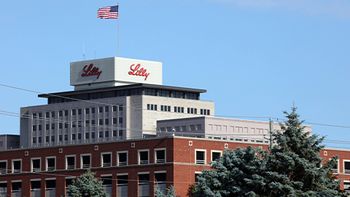
The Generation Park site will create over 600 permanent jobs, support advanced small molecule production, and play a role in scaling orforglipron, Lilly’s first oral GLP-1 receptor agonist for obesity.
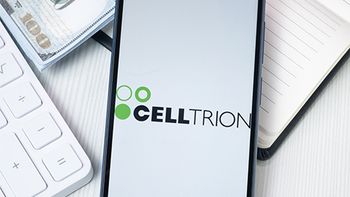
The South Korean pharma company’s US subsidiary is purchasing Eli Lilly’s Branchburg, NJ site to safeguard against potential tariffs. strengthen domestic production, and expands its biosimilar footprint.

This episode of Pharma Pulse covers ACIP’s move toward shared decision-making for COVID-19 vaccines, Pfizer’s acquisition of Metsera to strengthen its obesity and cardiovascular pipelines, and Closed Loop Medicine’s partnership with Wedosify to improve patient adherence to GLP-1 therapies.

Takeda will be shipping treatments between Europe and the US using VELA’s sailing cargo trimaran, potentially reducing greenhouse gas emissions by up to 99% when compared with air freight.

This episode of Pharma Pulse covers GSK’s $30 billion plan to expand US biopharma production, new evidence that weekly GLP-1 therapies significantly reduce cardiovascular risks, and Roche’s acquisition of 89bio to add the FGF21 analog Pegozafermin to its growing metabolic disease portfolio.
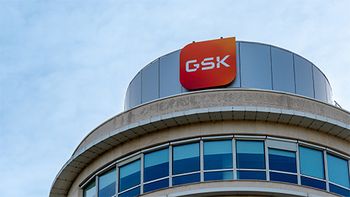
The pharmaceutical giant’s commitment includes a $1.2 billion investment in advanced facilities powered by AI and digital technology, strengthening biopharma manufacturing and clinical research across the United States.

This episode of Pharma Pulse covers the former CDC director’s claim she was dismissed for refusing to prioritize ideology over evidence, new findings that physician mental health remains a serious concern, and Eli Lilly’s $5 billion investment in a new Virginia manufacturing plant to expand biologics production.
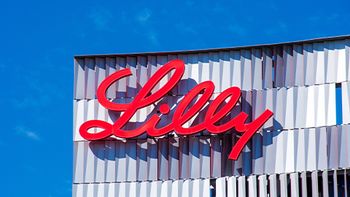
The new Goochland County facility will serve as Lilly’s first fully integrated API and drug product site, focusing on antibody-drug conjugates, while creating thousands of jobs and strengthening domestic supply chains.

This episode of Pharma Pulse covers new data showing 1 in 6 US parents are delaying or skipping childhood vaccinations, Secretary Robert F. Kennedy Jr.’s move to expand a federal vaccine advisory committee, and survey findings that more than half of healthcare workers are considering leaving their current roles.

This episode of Pharma Pulse covers healthcare advocates’ push for a $50 billion Rural Health Transformation Program, new research showing pneumococcal vaccination gaps among adults with celiac disease, and Novartis’ $5.7 billion licensing agreement with Monte Rosa Therapeutics for protein degrader therapies.

The collaboration seeks to reduce drug waste, prevent errors, and support more reliable delivery of life-saving therapies to patients worldwide.

This episode of Pharma Pulse covers new FDA guidance to speed development of non-opioid pain treatments, the FTC’s warning against non-compete agreements for doctors and nurses, and DHL Supply Chain’s acquisition of SDS Rx to strengthen last-mile healthcare delivery.

